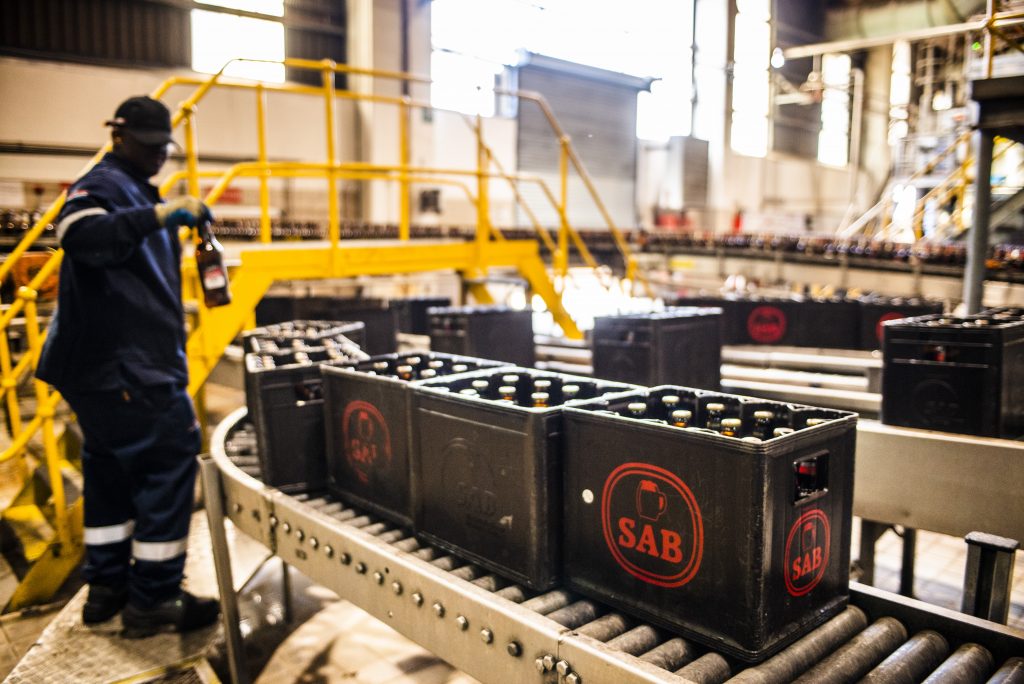SAB calls for tax relief in Godongwana's budget

The country’s largest beer maker South African Breweries (SAB) has called on Finance Minister Enoch Godongwana to halt increases in excise duties on beer, to allow the industry time to recover from the Covid-19 pandemic and play a role in “reigniting the economy”.
Ahead of the 2022 National Budget on Wednesday, SAB – which forms part of JSE-listed global alcohol giant Anheuser-Busch InBev – called on Godongwana to only adjust excise taxes on the industry in line with inflation.
“2021 was a sobering year for the beer industry because we had not received any reprieve from excise [duties]… or from the Covid-19 regulations and restrictions. We are saying that we require certainty from excise policy,” comments SAB economist Fatsani Banda.
“Excise tax that is above inflation makes it difficult for us to be competitive, it makes it difficult for us to continue having business planning or [create viable] business models and it makes it difficult for us to cover our costs,” adds Banda.
Speaking at SAB’s State of the Beer Economy event in Cape Town on Monday, she noted that although there is an appreciation of the important role that excise taxes contribute in providing public financing solutions and disincentivizing the sale or buying of certain products, the recovery of the local beer sector is of equal importance.
“Excise taxes are important but so is the recovery story. [So] how do we balance this off in a substantial way that doesn’t hinder our business model and our opportunity to contribute but actually gives us space and the room to be part of the recovery story in SA.”
Pandemic-linked lost sales
Having lost approximately 160 trading days over the two-year Covid-19 pandemic as a result of strict trading restrictions, it is estimated that it could take the industry up to three years to recover.
According to director and chief economist at Econometrix, Dr Azar Jammine, keeping excise duties in line with inflation is not only a necessary policy intervention but a small price that the government can afford to pay.
“The amount of excise revenue that the government is reaping from small brewers is a maximum of R150 million – I don’t know the exact figures… Now, really that would not be a huge sacrifice to actually give away some margin in that regard,” he says.
“The revenue sacrifice is so minute and yet the impact on a whole industry around the country and tourism as a whole and the knock-on benefits in terms of employment creation could be potentially far in excess of the R100 million or so revenue sacrifice that would thereby be incurred,” Jammine adds.
Losing to the illicit market
In 2021 former Finance Minister Tito Mboweni announced an 8% increase in excise duties for both alcohol and tobacco; the country’s inflation rate then stood at around 4.41%.
According to Jammine, increasing excise duties at a rate higher than inflation creates an environment that is conducive for the sprouting of illicit traders who sometimes manage to squeeze legal brewers out of their markets.
CEO of the Beer Association of South Africa, Patricia Pillay, says the organisation has seen 30% of its members close their doors because they struggled to maintain high production costs and compete with illicit traders who sell their products for a cheaper price.
For Pillay, a cold shoulder from the finance minister on Wednesday, will add to the local beer industry’s woes and also have a ripple effect, hampering SA’s overall economic recovery.
“You are slowly going to decimate an industry and you are going to create more unemployment and your crime rate is going to increase,” claims Pillay.
“Government really needs to pay attention to us, we really want to be part of the solution and not add to the problem.”
Impact on investment
Banda warned that should the government continue to pile on tax pressures on the industry, there will be less incentive for SAB to stay in South Africa.
“Of course we pride ourselves on having an almost 100% localised value-chain, but the more we get tax pressures and the more we get uncertainty around the direction of excise, the less the government creates an enabling environment for investment and the more we have to diversify our costs,” she says.
“That may include increasing imports of hops instead of getting it from our farmers… We would have to outsource it from other markets to keep cost-pressures down.”
“We would like to invest. We would like to create jobs and we would also like to… close out the growing gap between illicit alcohol and legal taxed alcohol,” adds Banda.

